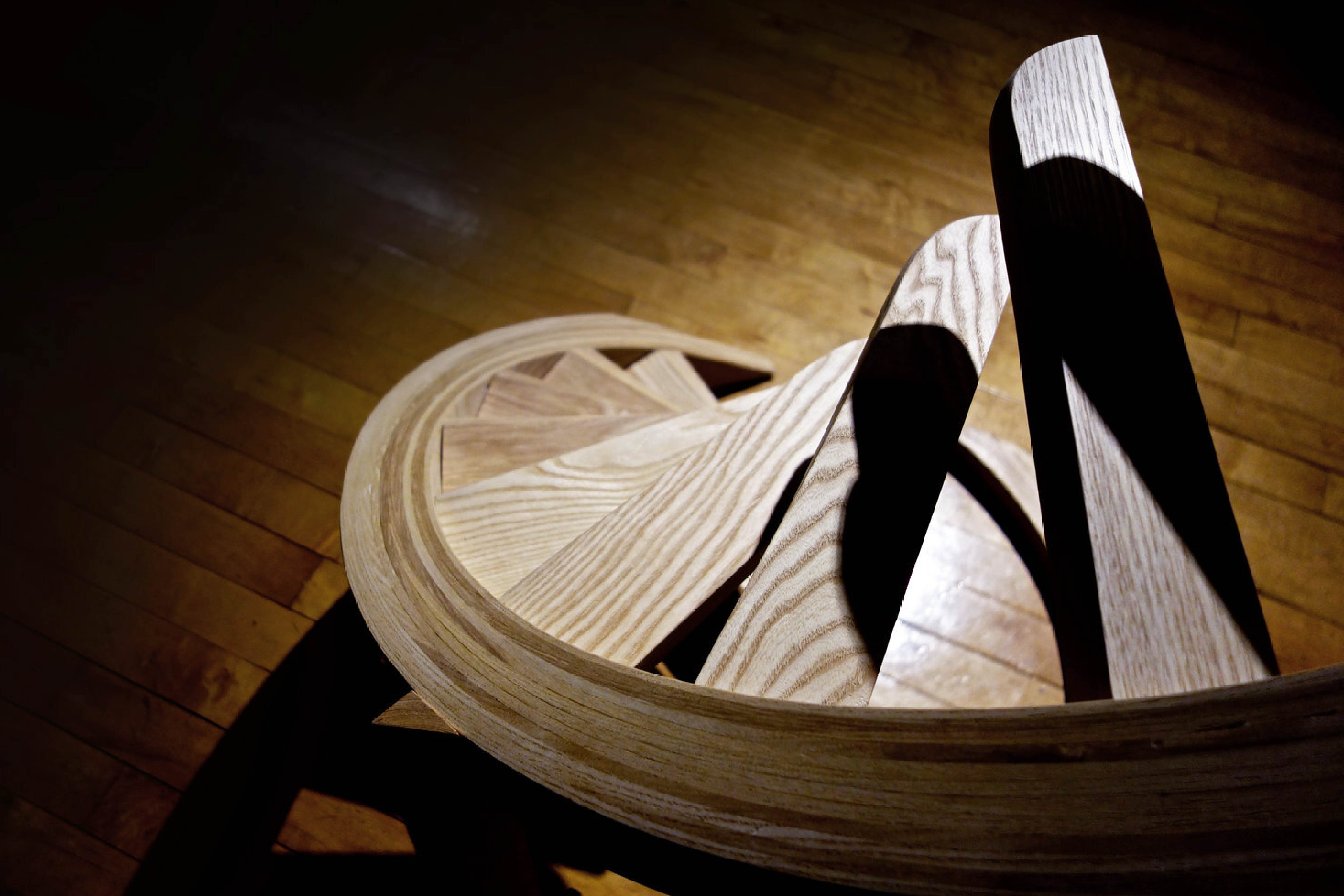
Ascending
This piece was inspired by the compagnonnage tradition.
Compagnonnage was a meritocratic system of craftsmanship that dates back to the Middle Ages. The traditional education included craft and design skills such as model-making for carpentry, joinery, cabinetry, and metalwork.
To complete an apprenticeship, guild members (compagnons) would produce a staircase model to show mastery of various complex techniques and be accepted as masters in their own right.
In my attempt to reinterpret this tradition, I chose to decontextualize such a historically rich and functionally heavy object and look at it from the perspective of an aspiring companion.
The main challenges that I set myself, construction-wise, were cantilevering the steps and maintaining the overall physical balance of the piece. Form and function inevitably informed each other, for the piece’s ability to support human weight dictated many of the design decisions that were made along the way.
Compagnonnage was a meritocratic system of craftsmanship that dates back to the Middle Ages. The traditional education included craft and design skills such as model-making for carpentry, joinery, cabinetry, and metalwork.
To complete an apprenticeship, guild members (compagnons) would produce a staircase model to show mastery of various complex techniques and be accepted as masters in their own right.
In my attempt to reinterpret this tradition, I chose to decontextualize such a historically rich and functionally heavy object and look at it from the perspective of an aspiring companion.
The main challenges that I set myself, construction-wise, were cantilevering the steps and maintaining the overall physical balance of the piece. Form and function inevitably informed each other, for the piece’s ability to support human weight dictated many of the design decisions that were made along the way.
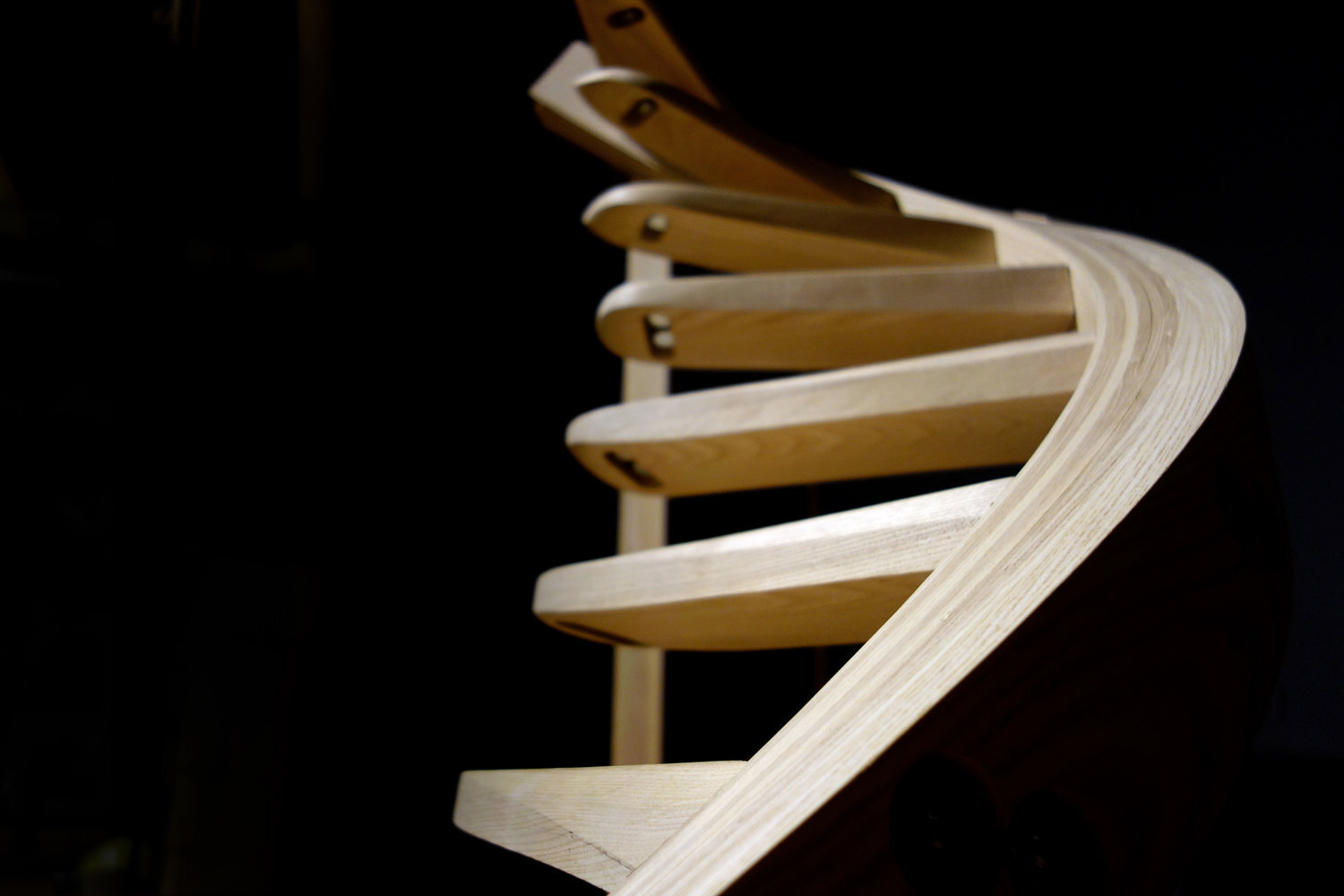
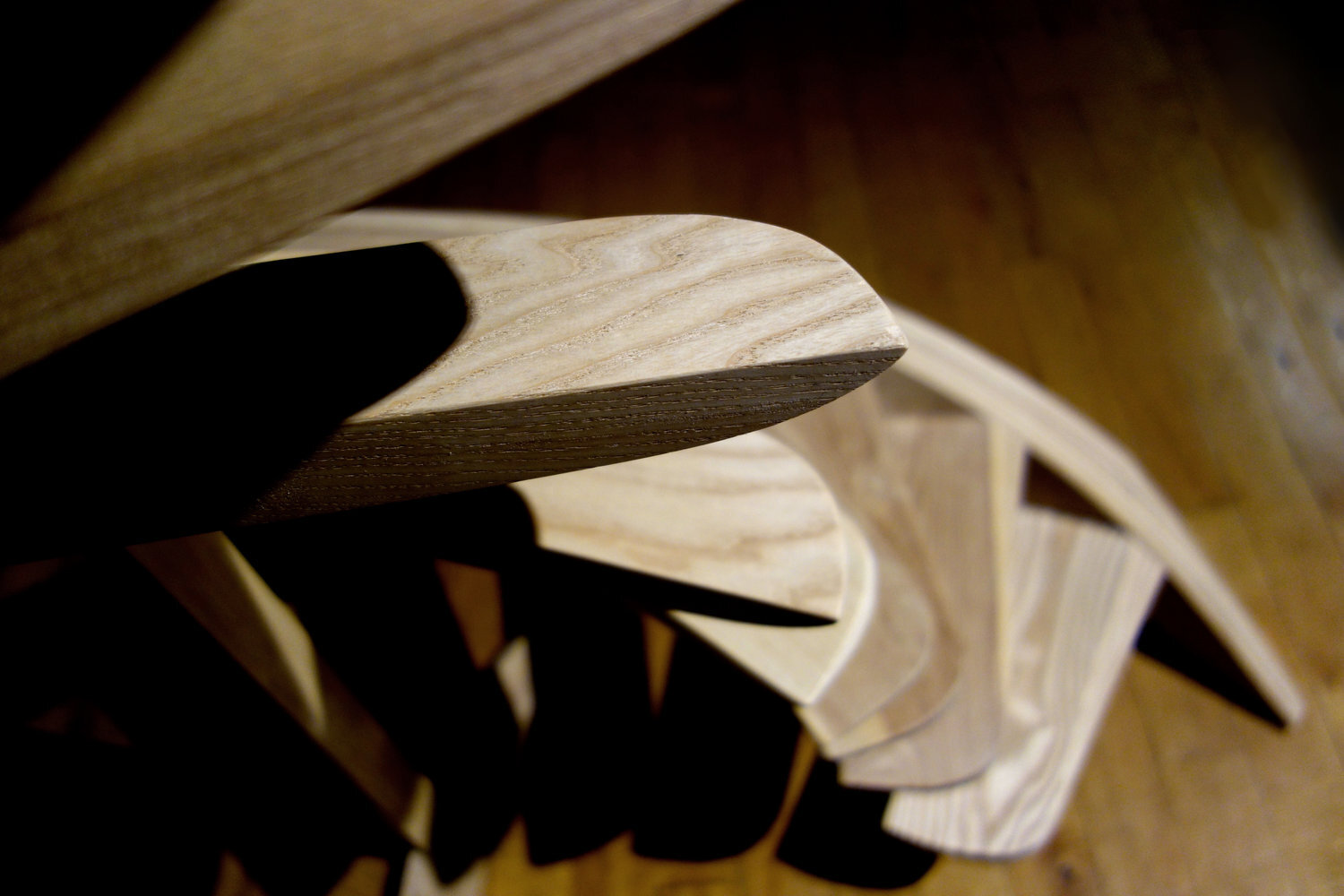
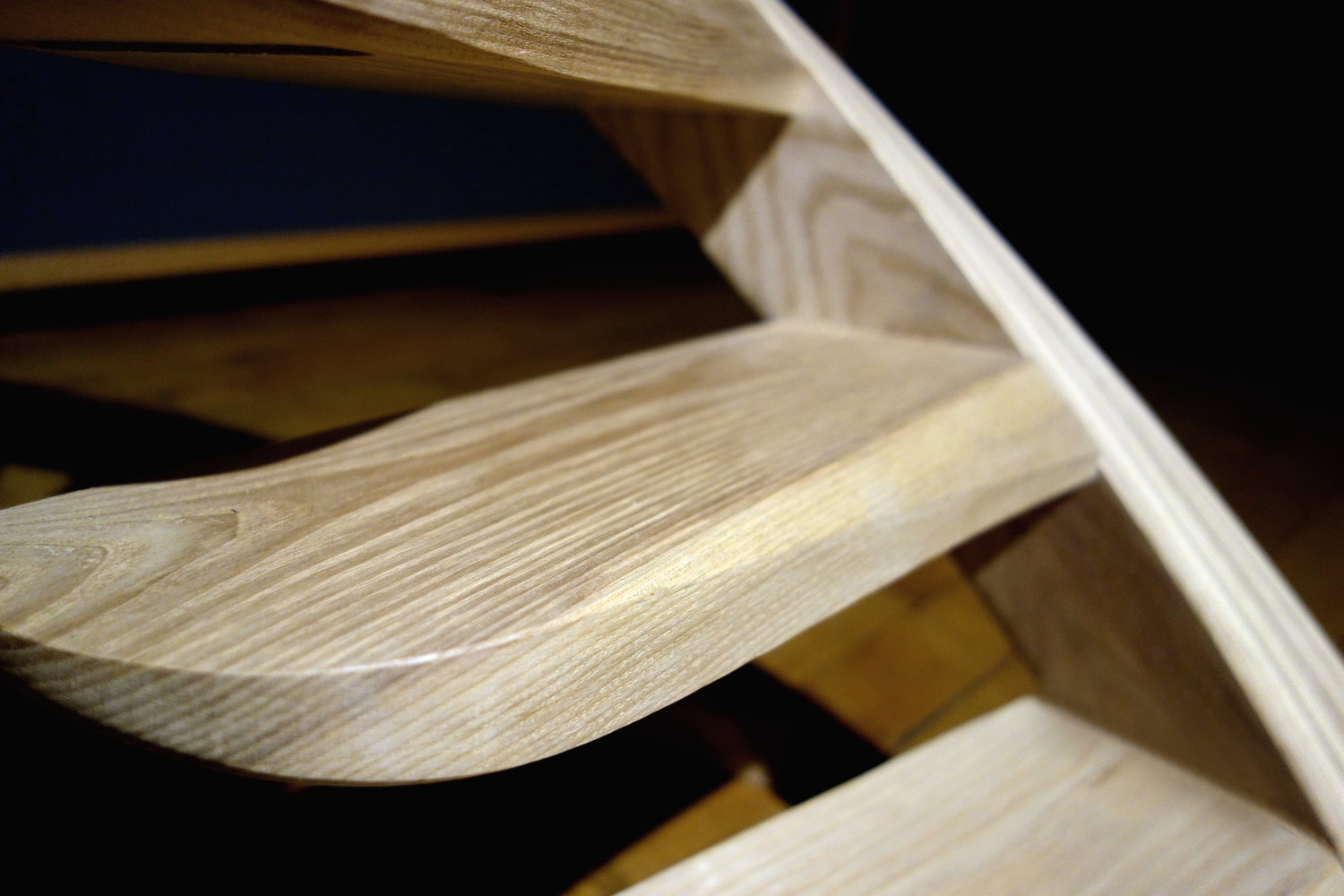
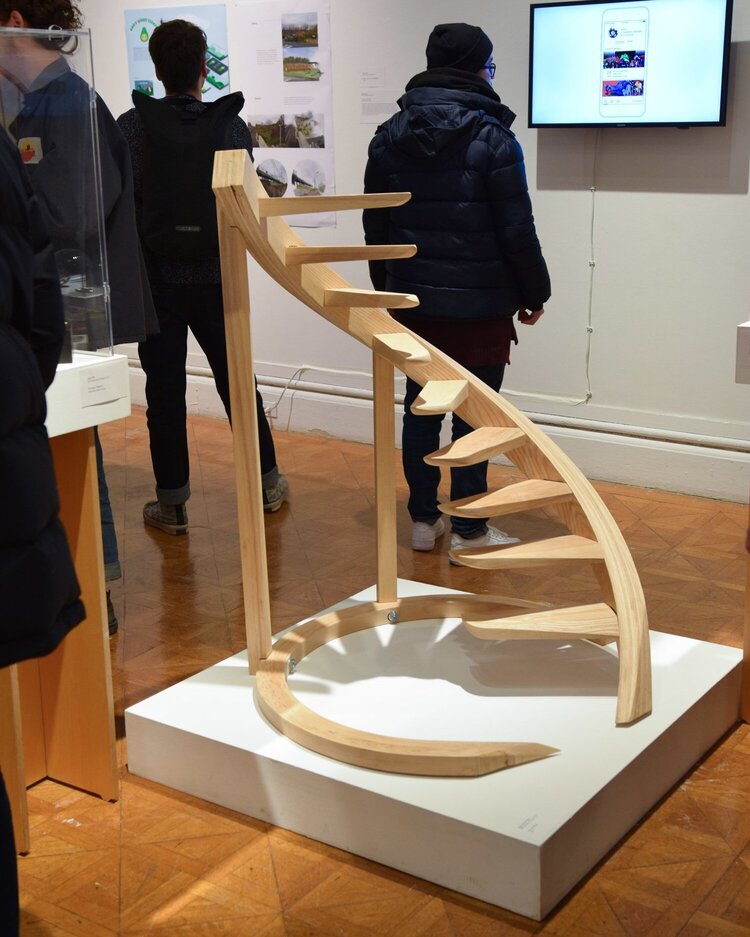
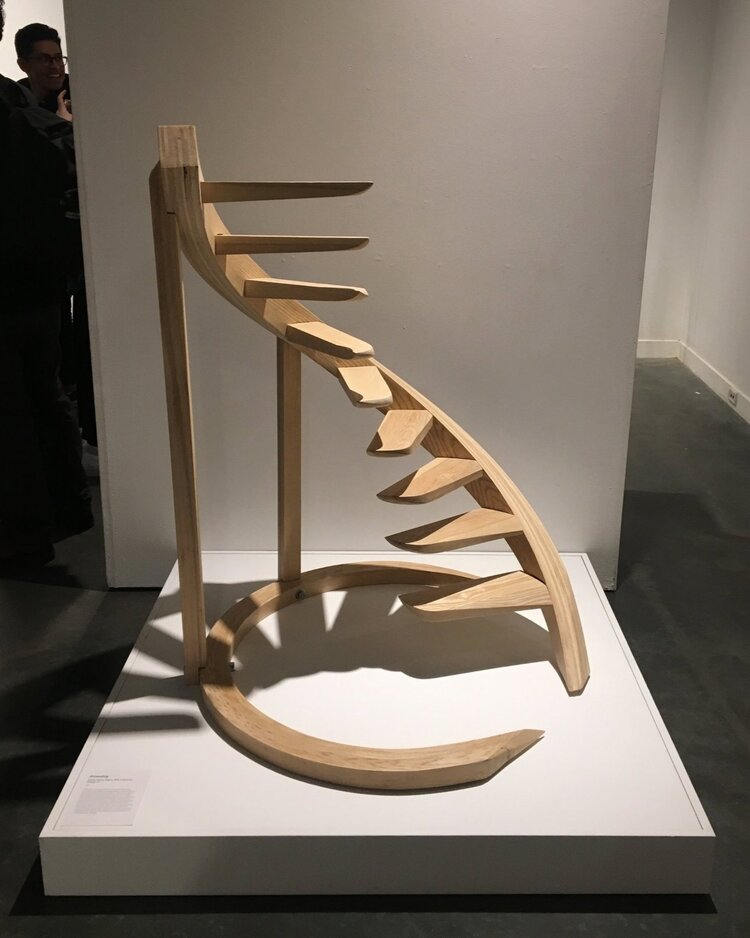
“Our America” Gelman Gallery, Providence RI, 2017
📸 Maria Alexia Platia
